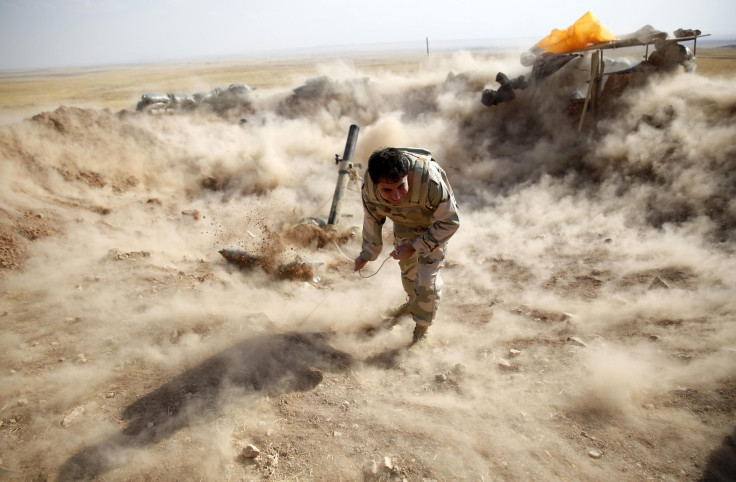Officials Refute Iraqi Media Reports That ISIS Members Have Contracted Ebola In Mosul

The two biggest news stories of 2014 collided Wednesday when Iraqi media outlets reported that members of the Islamic State group -- also known as ISIS -- had contracted the deadly virus Ebola. But later updates from the World Health Organization and Iraq's Ministry of Health indicate the stories may be just rumors.
"We have no official notification ... that it is Ebola," Christy Feig, director of communications for WHO, told Mashable, though WHO has contacted Iraqi officials to offer help.
Iraq's Ministry of Health also denied that anyone in Mosul had contracted the Ebola virus, which broke out in March in West Africa. Spokesman Ahmed Rudaini told news site Al-Maalomah that Mosul doesn't even have the technological capability to diagnose Ebola cases -- only Baghdad does. Therefore, he said, the reports that Ebola has infected anyone in Mosul are "incorrect" and "unfounded."
The discussion started with an article in Iraq's official newspaper, Al-Sabah, that said "terrorists" brought Ebola to Mosul. "Many diseases and epidemics have spread among residents of the city of Mosul," it read. "Two Ebola and 26 HIV/AIDS cases were registered."
Ebola is primarily a threat in West Africa, where its latest outbreak has killed nearly 8,000 people. Mashable reported ISIS has not recruited fighters from any countries severely affected by the disease. Its African members are primarily from Algeria, Egypt, Morocco, Sudan and Tunisia.
In the event ISIS does have Ebola, the militants could use it as a biological terror technique, Forbes reported in October. Members could contract the virus on purpose and then go to foreign countries to infect others. “The individual exposed to the Ebola virus would be the carrier,” national security professor Al Shimkus told Forbes. “In the context of terrorist activity, it doesn’t take much sophistication to go to that next step to use a human being as a carrier.”
ISIS, a body of militants labeled a terrorist group by the United States and European Union (among others), has controlled Mosul since June. Iraq's second-largest city is also ISIS' largest stronghold. The group began spreading across the Middle East last summer, taking over large swaths of Iraq and Syria through brutal tactics.
© Copyright IBTimes 2024. All rights reserved.






















